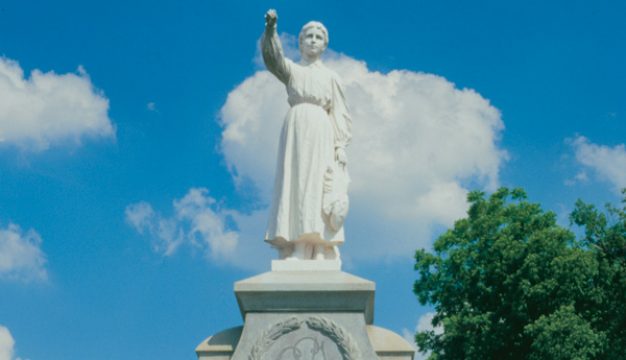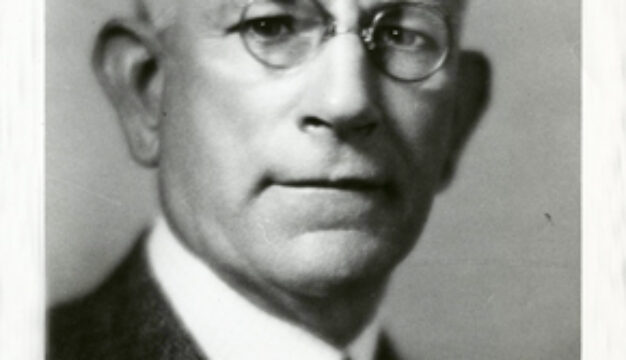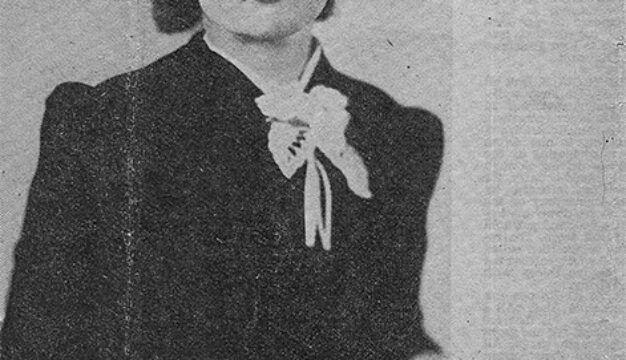Philip Dale Roddey
 Philip Roddey
Philip Dale Roddey (ca. 1824-1897) was a well-regarded Confederate general who was known as the "Defender of North Alabama" for his actions in the area during the American Civil War. He notably served under Confederate icons Joseph Wheeler and Nathan Bedford Forrest. After surrendering to U.S. Army forces in May 1865, Roddey returned to Alabama before moving to New York where he became a successful businessman.
Philip Roddey
Philip Dale Roddey (ca. 1824-1897) was a well-regarded Confederate general who was known as the "Defender of North Alabama" for his actions in the area during the American Civil War. He notably served under Confederate icons Joseph Wheeler and Nathan Bedford Forrest. After surrendering to U.S. Army forces in May 1865, Roddey returned to Alabama before moving to New York where he became a successful businessman.
Philip Dale Roddey was born somewhere around April 2, 1824, (sources list varying years for his birth) in Moulton, Lawrence County, to Philip and Sarah Roddey, who immigrated to Alabama from Tennessee. His father, a saddlemaker and War of 1812 veteran, was murdered in 1824 after a dispute with a neighbor and his mother never remarried. Struggling financially and with little education, Roddey apprenticed himself to a local tailor and became a tailor as well. On November 6, 1845, he married Margaret McCaughey, with whom he would later have perhaps five children. In August 1849, Roddey was elected sheriff of Lawrence County, serving until 1852 when he began working on a steamboat on the Tennessee River. In 1860, he purchased his own steamboat; he would destroy it in February 1862 to keep it out of federal hands.
After Alabama seceded from the United States in January 1861, Roddey joined the Confederate Army, raising a small cavalry scouting unit called the "Tishomingo Rangers" that consisted of soldiers from Mississippi and Alabama. In April 1862, Roddey's unit took part in the Battle of Shiloh in Tennessee as Maj. Gen. Braxton Bragg's escort. After Shiloh, Roddey's unit was attached to Brig. Gen. James R. Chalmers's brigade of Mississippians and then served in the Iuka and Corinth campaigns in the fall of 1862. That November, Roddey was authorized to expand his unit into a regiment with volunteers from Tuscumbia, becoming the Fourth Alabama (Roddey's) Cavalry Regiment. In December, Roddey was promoted to colonel.
In the spring of 1863, Roddey was named as the commander of the District of Northern Alabama and his regiment was stationed in the Tennessee River Valley. In April 1863, his forces pushed back a contingent of federal forces under the command of Brig. Gen. Grenville Dodge in northwest Alabama as part of a raid meant to divert attention from Col. Abel Streight's invasion of northern Alabama. Roddey was praised for his efforts and in August, was promoted to full brigadier general and given command of a cavalry brigade that included the Fourth, Fifth, and Fifty-third Alabama Cavalry regiments. After being attached to Maj. Gen. Joseph Wheeler's cavalry corps, Roddey's brigade saw action at the 1863 Battles of Chickamauga and Chattanooga. In 1864, Roddey's brigade was attached to Maj. Gen. Nathan Bedford Forrest's cavalry division, fighting in northeast Mississippi at the Battle of Brice's Cross Roads in June and during the Atlanta Campaign in July. In September, Roddey was ordered to protect the northern district of northern Alabama and for his efforts was given the moniker "Defender of North Alabama." In March and April of 1865, Roddey helped defend the state during U.S. Army general James H. Wilson's raid, and his last fight was at the Battle of Selma, in Dallas County, on April 2, 1865. As the Confederate war effort collapsed, Roddey formerly surrender to federal forces at Pond Spring on May 17, 1865.
After the war, Roddey and his family moved to Tuscaloosa, Tuscaloosa County, where he had taken a position registering students at the University of Alabama. In February 1866, Roddey received a pardon from the federal government for his participation in the Confederate war effort. After working with a merchant house in New York, Roddey moved his family to New York City, where he became a successful businessman.
In the 1870s, Roddey made the first of several trips to England, and at some point entered into a scandalous relationship with Carlotta F. Shotwell, whom he had married while still married to Margaret McGaughey Roddey. Shotwell wrote about their relationship and her husband's alleged "dark side" in a book entitled A General Betrayal: The Sufferings and Trials of Carlotta Frances Roddey. The pair would be the subject of a complicated New York City court battle in 1874 that ended with Shotwell's acquittal. On December 29, 1881, Margaret Roddey died and her husband moved to London, residing at least for some time at the Westminster Palace Hotel, where he eventually died from uremia on July 20, 1897. His body was returned to the United States and buried in Greenwood Cemetery in Tuscaloosa.



